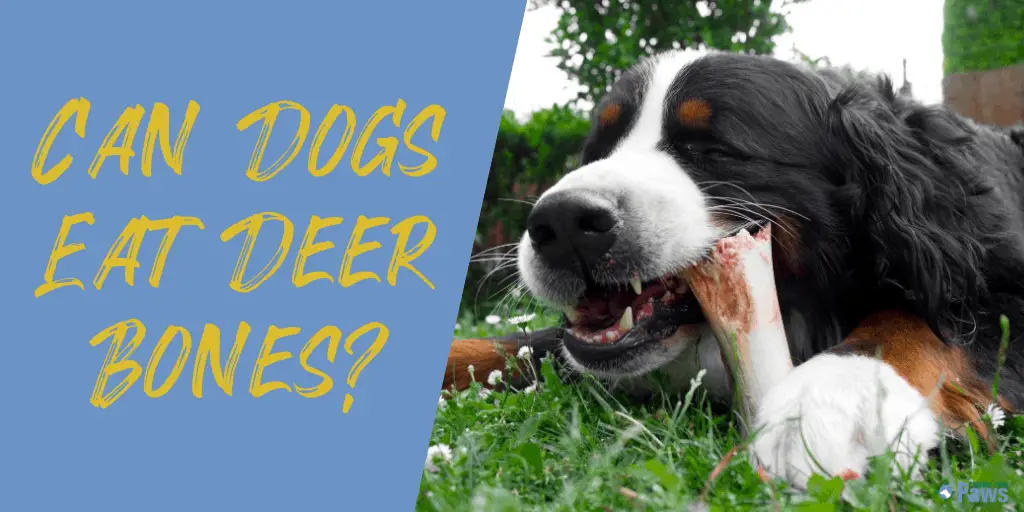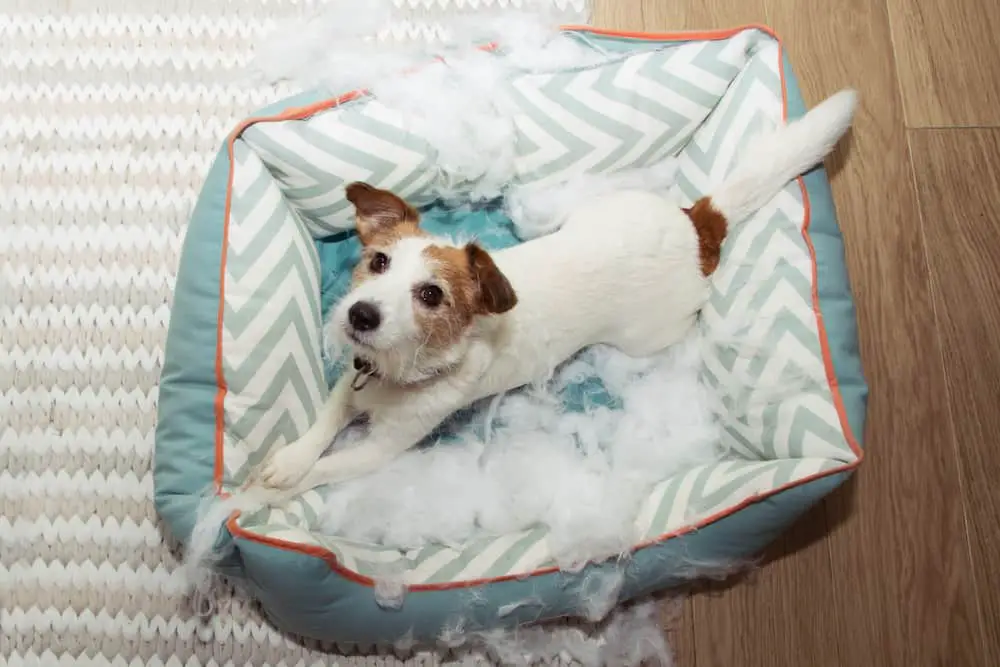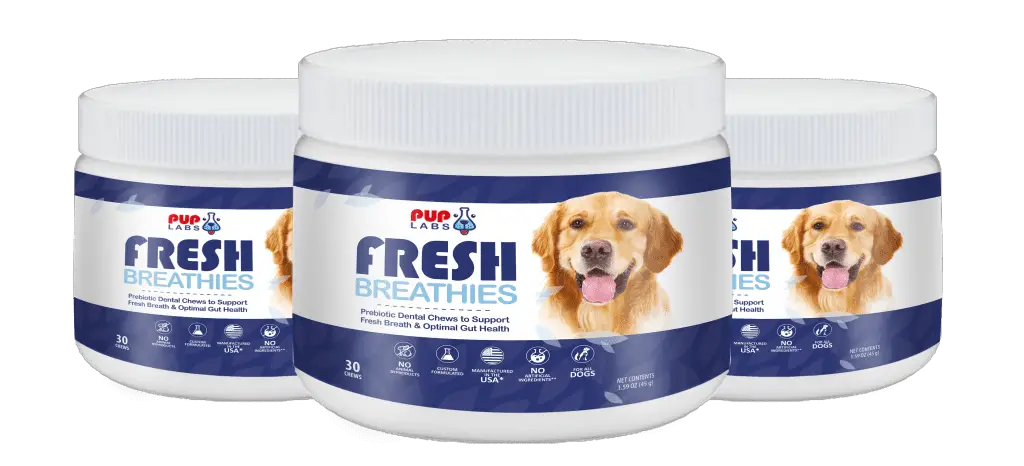Most dogs enjoy chewing on whatever they can find, which makes it easy to encourage them to get more nutrients in their diet.
You can find a variety of treats with nutritional benefits online or in pet supply stores, but you can also improve your dog’s diet with bones.
Recreational bones are a great source of nutrients and minerals. Unless your vet recommends otherwise, you can also use bones as a way to improve your dog’s dental health.
You may wonder what bones are best for your dog, like the all too common deer bones.
Read on to learn everything you need to know about deer bones and how they can help your dog if you take the right precautions.
What about fake bones? Are Nylabones safe for dogs?
Can Dogs Have Deer Bones?
The good news is that deer bones are not toxic for dogs, so they are safe to chew.
Here are a few of the different kinds of bones and what you should know about them.
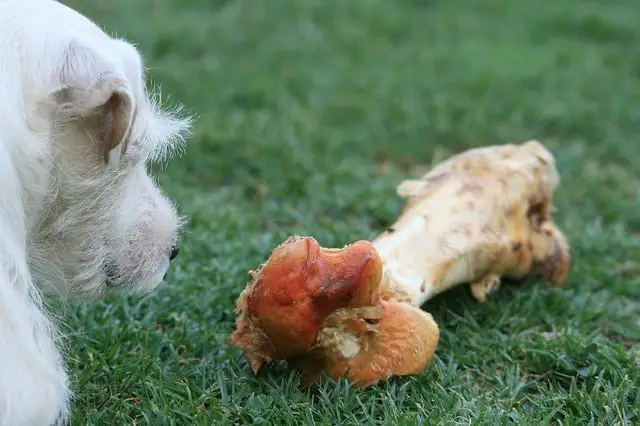
Long Deer Bones
Longer deer bones are found in the legs.
The cartilage inside the bone and soft tissue attached to the outside provide the nutrients and fat that dogs benefit from.
Specifically, dogs that chew bones enjoy more calcium phosphate, protein, and calcium than if they stuck with eating just their normal kibble[1].
As they chew, they’ll also absorb collagen, which improves their bone, joint, and coat health[2].
Related: Are Real Bones Safe for Dogs?
Flat Deer Bones
You can find flat deer bones in a deer’s ribs, scapula, or pelvis.
They may also come from the spine, although these will be much smaller than traditional flat bones
They share the same nutritional value as long deer bones. The only differences are their shape and where they come from.
Cooked Deer Bones
Your first thought may be to cook the deer bones by boiling or baking them to remove any germs left behind by the raw meat.
This is actually extremely dangerous for dogs, because the bone becomes more likely to break into shards when they chew it.
Cooking also takes away most of the nutrients[3], so it’s better all around to avoid cooking any bone you want to give to your dog.
Raw Deer Bones
Dogs have the genetic makeup to chew on raw bones and benefit from it.
Unlike humans, who are sensitive to raw meat and juices, dogs get more nutrients from bones straight from an animal.
If they get a bone that still has some meat and grizzle on it, that’s an even tastier and nutritious snack for them.
Be aware that any raw bones may contain salmonella, which can make dogs sick with fever, diarrhea and lethargy[4].
If your dog is going to eat a raw bone, they should do so outside in an area that can get messy.
It may be smart to wash your dog’s mouth and possibly give them a bath if they get the raw meat and juices on them before letting you or your loved ones pet them.
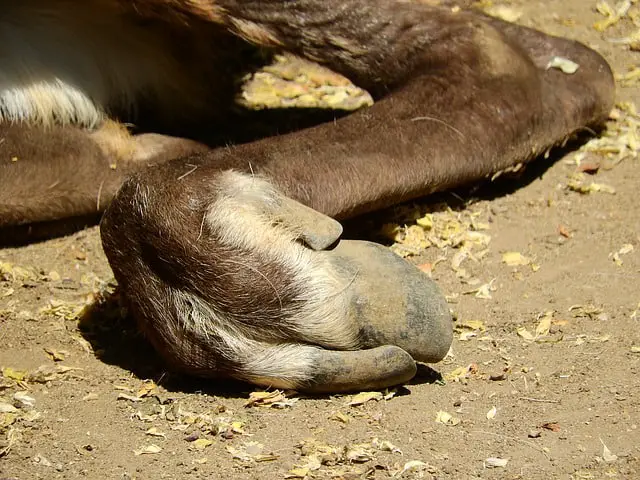
Can Dogs Have Deer Hooves?
You’ve probably noticed that you can get treats like bones and ears in pet supply stores.
Does that mean dogs can also have deer hooves?
Are They Good for Dogs?
Deer hooves don’t contain many nutrients, so they won’t benefit your dogs health as much as traditional deer bones.
However, they do provide a good chew because they’re tough.
Like with any bone, hooves present the opportunity to splinter and block your dog’s intestines.
They can also be dangerous for large dogs, as they have bigger mouths and the ability to swallow a whole hoof.
See also: Can dogs have cow hooves?
Possible Dangers of Deer Bones
Before you give your dog a deer bone, consider these possible dangers and be aware of the potential consequences.
Consider Your Dog’s Size
Deer bones and hooves are not traditionally recommended for large dogs because they’re smaller and pose a choking hazard.
Large dogs can enjoy beef, lamb or pork bones instead if you want to leave them unsupervised.
Smaller dogs can more safely enjoy deer hooves and bones.
Although, as they chew, the bone or hoof can still choke them or splinter and cause intestinal damage.
Learn About Blockages
When a bone or hoof breaks or splinters, it could cause a blockage in your dog’s intestines.
If that happens, you may see symptoms such as[5]:
- Vomiting
- Diarrhea
- Loss of appetite
- Bloating
- Abdominal pain
- Hunching or whimpering when lying down
Monitor Your Dog’s Health
Shards and broken deer bones can also cause chipped or broken teeth.
This is why it’s so important to keep an eye on your dog whenever they’re chewing a bone, but especially a bone or hoof that comes from a deer.
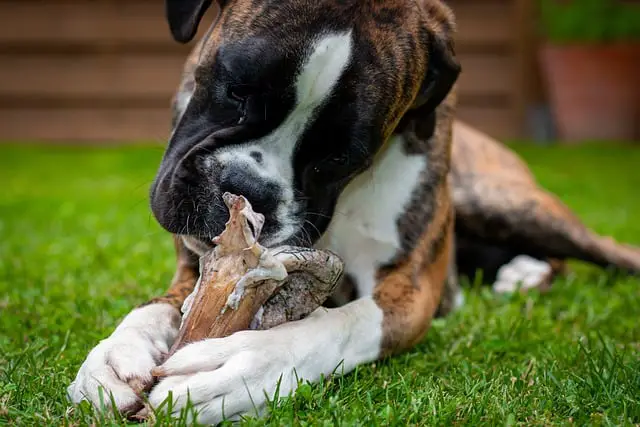
Cautions Before Giving Your Dog a Deer Bone
You can safely give your dog a deer bone if you take these extra precautions.
Buy From the Right Store
You should always give your dog a high-quality bone or hoof, like the Ziwi Peak Oral Health Deer Shank bone, that comes from a reputable pet supply store, grocery store, or butcher.
Prepackaged bones may be of lower quality and more likely to break or not have the nutrients you’re looking for.
They could also be made with cheap, synthetic materials that limit the actual nutrition your dog needs from a bone.
Monitor Their First Bone
While your dog chews on their first deer bone or hoof, see how they do.
If your dog is an aggressive chewer, you’ll need to keep a closer eye on them than if they were to passively gnaw on a bone or hoof.
Aggressive chewers are more likely to break whatever they gnaw on.
Considering deer antlers instead? Read this first!
Conclusion
Many dogs enjoy deer bones and hooves every day, but only after their owners understand the pros and cons of allowing deer treats.
Watch your dog if it’s the first time that they’re chewing on deer products, so you know that they stay safe while they enjoy a nutritious chew.
Resources
- https://www.petmd.com/dog/nutrition/evr_nutritional_aspects_of_bone_composition?page=2
- https://vetset.net/customnews/benefits-collagen-dog/
- https://lakewoodanimalhospital.ca/bones-to-chew-or-not-to-chew/
- https://www.petmd.com/dog/conditions/digestive/c_dg_salmonellosis
- https://www.akc.org/expert-advice/health/bowel-obstruction-in-dogs/

